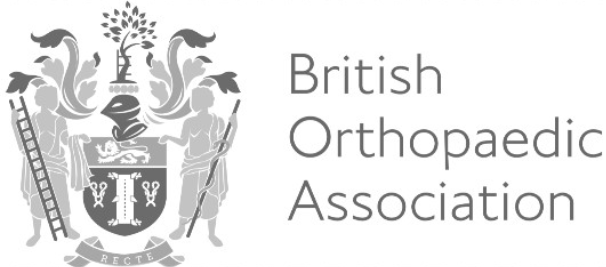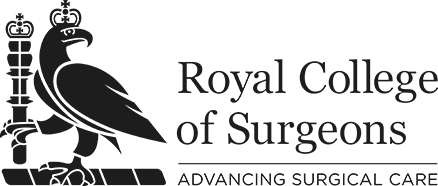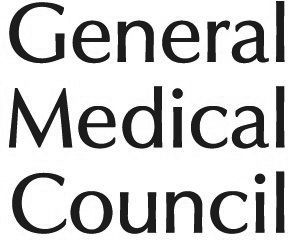Mr Luke Jones, Consultant Knee Surgeon
Mr Luke Jones
Consultant Knee Surgeon
Mr Luke Jones DPhil(Oxon) FRCS(Tr&Orth) USMLE MBBS BSc(hons)
Consultant Knee Surgeon
Mr Luke Jones
Consultant Knee Surgeon DPhil(Oxon) FRCS(Tr&Orth) USMLE MBBS BSc(hons)
Areas of expertise
- Knee pain
- ACL (anterior cruciate ligament) injury
- Arthritis (knee)
- Fracture (broken bone)
- Torn meniscus (cartilage)

Recommendations for Mr Jones
These recommendations are for information purposes only. Doctors providing recommendations do so in good faith and are not responsible for clinical outcomes.












Recommended by:
Make an appointment
Address
-
The Lister Hospital
Chelsea Bridge Road, London, SW1W 8RH
-
Chelsea Outpatients
272 & 280 King's Road , London, SW3 5AW
About Mr Luke Jones
Luke read medicine in London and then completed basic surgical training in London and Surrey. He commenced higher surgical training in Orthopaedic Surgery in Oxford in 2008.
He completed his PhD in Musculoskeletal Science at Oxford University In 2013. His thesis, entitled "Early Knee Osteoarthritis, Symptoms and Structure", had a focus on the role of the meniscus on the aetiology of osteoarthritis and determining the optimal timing of joint replacement.
He is double Fellowship trained. Having completed the United States Medical Licensing Examination, he spent a year working on the Adult Joint Reconstruction Service at Stanford Healthcare, Stanford University, California, USA. This was followed with further fellowship training in the Sports Knee Service, Oxford University Hospitals, UK.
Luke joined the knee service as a Consultant at Chelsea and Westminster Hospital in 2018 and quickly established a reputation for providing bespoke, patient-centred care. His practice is split equally between knee sports injuries and joint replacement. He has a special interest in Anterior Cruciate Ligament reconstruction and multiligament knee injuries. He is a key opinion leader in London on partial and minimally invasive knee replacement, as well as daycase knee replacement.
Luke entered private practice in 2019 and consults at The Lister Hospital, Chelsea as well as the Private Wing at Chelsea and Westminster Hospital.
Outside of work Luke is a sports enthusiast and played rugby at National League and County level, and won a Rugby Blue at Oxford.
Areas of expertise
- ACL (anterior cruciate ligament) injury
- ACL reconstruction
- Arthritis (knee)
- Arthroscopy
- Cartilage surgery (knee)
- Custom-made knee replacement
- Fracture (broken bone)
- Knee arthroscopy
- Knee cyst
- Knee ligament repair
- Knee pain
- Knee preservation surgery
- Knee replacement
- Meniscal repair
- Minimally invasive knee surgery
- Multi-ligament reconstruction
- Osteoarthritis
- Osteotomy
- Partial knee replacement
- Patella (kneecap) dislocation
- Patella realignment
- Patellofemoral joint replacement
- Posterior cruciate ligament (PCL) reconstruction
- Posterolateral corner injury
- Postoperative rehabilitation
- Revision surgery
- Robotic assisted knee surgery
- Robotic assisted partial knee replacement
- Sports injuries
- Stress fractures
- Tendon repair
- The young knee
- Tibial tubercle transfer
- Torn meniscus (cartilage)
- Total knee replacement
Frequently asked questions
What are the common symptoms that your patients tend to present with?
My practice is dedicated to conditions that affect the knee. Patients tend to be of two broad types:
1. Older patients with degenerative, wear and tear problems such as osteoarthritis. Here symptoms tend to be pain, stiffness and reduced range of movement although catching and swelling are not uncommon. In those who have had unsuccessful joint replacements, pain and stiffness tend to dominate.
2. Younger patients with sports knee injuries. In the acute stage following an injury, the knee tends to be swollen and painful, but as the knee settles, the symptoms are more commonly catching, locking or giving way. Sports people often also have overuse type injuries. In this situation, the symptoms they present with are often very specific to their particular sport. For example, runners often have lateral knee pain, whereas jumping athletes tend to have pain focussed over the front of their knee.
Interestingly I often find that these two groups now overlap as people, rightly, want to remain more and more active as they get older.
What are the treatments that you're able to offer your patients?
I provide bespoke treatment algorithms to patients dependent on their specific presentation and diagnosis.
Of course, treatment strategies are always focused on non-surgical interventions in the first instance. These include injections, physiotherapy, exercise modification and bracing.
For sports injuries, I offer keyhole arthroscopic surgery and ligament reconstruction surgery. Realignment procedures such as osteotomy can be helpful in select patients, as can cartilage regeneration procedures.
For those with degenerative joint disease, I offer day case partial knee replacement and minimally invasive total knee replacement. I perform revision knee replacement in patients whose initial surgery has been unsuccessful or those in whom the joint replacement has worn out.
What are your areas of sub-specialist interest?
Given that I specialise in just one joint, I’d consider that a sub-specialisation in itself! However, within sports knee injuries my particular interest is in Anterior Cruciate Ligament Reconstruction and meniscal injuries.
As a key opinion leader in the UK on day case unicompartmental knee replacement, my team and I are delighted to be able to offer a world-class joint replacement experience to our patients.
Professional memberships




Articles by Mr Luke Jones
Varus alignment of the proximal tibia is associated with structural progression in early to moderate varus osteoarthritis of the knee
Extending the use of PROMs in the NHS--using the oxford knee score in patients undergoing non-operative management for knee osteoarthritis
Titanium elastic nails, open reduction internal fixation and non-operative management for middle third clavicle fractures
The Burch-Schneider cage: 9-year survival in Paprosky type 3 acetabular defects. Clinical and radiological follow-up


 Instant booking
Instant booking












_1681117710096.png)
_1681117769329.png)
_1681117814255.png)
_1681117853047.png)
_1681117912102.png)
_1681117972370.png)
_1681118013818.png)
_1681118056631.png)
_1681118097384.png)
_1681118136078.png)
_1681118189358.png)
_1681118327471.png)
_1681118474093.png)




